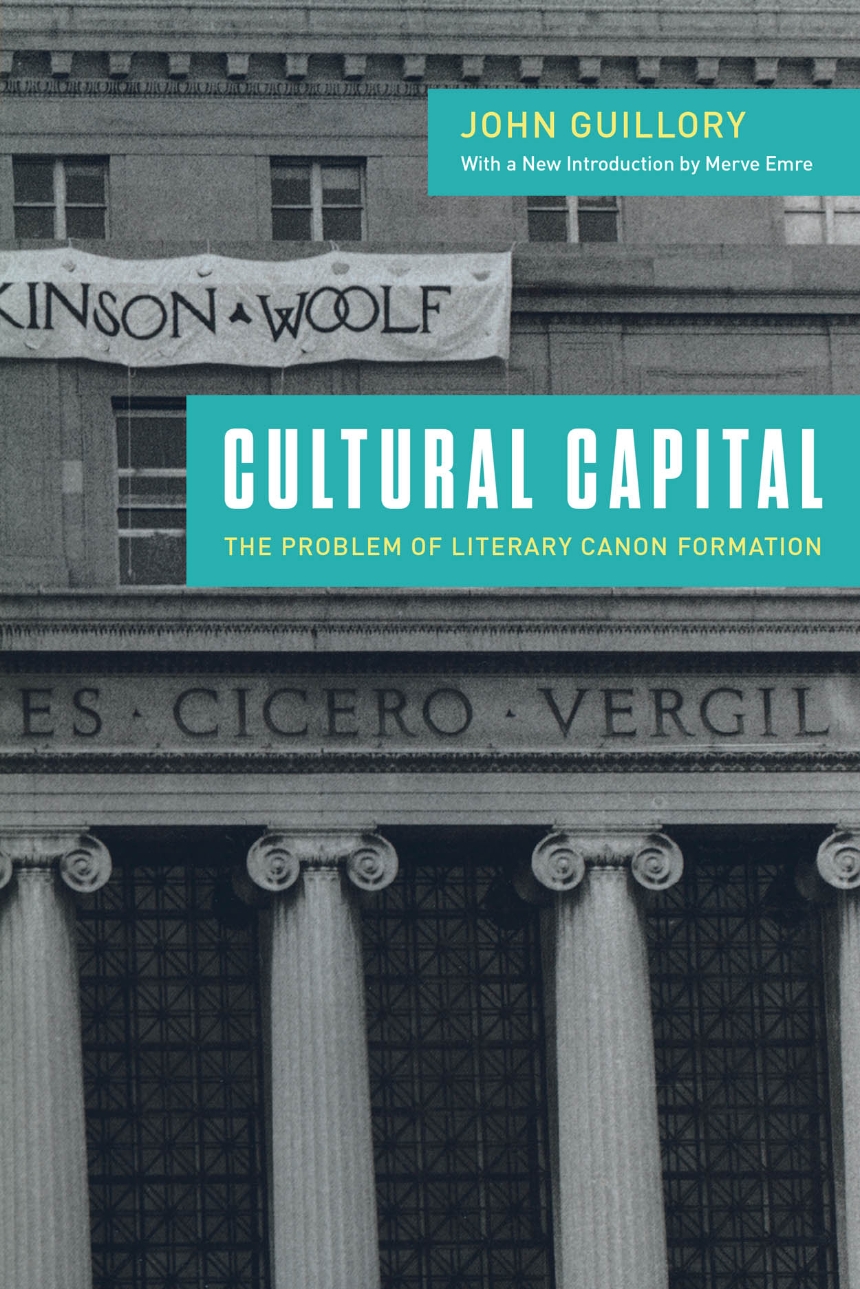Cultural Capital
The Problem of Literary Canon Formation
Enlarged
An enlarged edition to celebrate the thirtieth anniversary of John Guillory’s formative text on the literary canon.
Since its publication in 1993, John Guillory’s Cultural Capital has been a signal text for understanding the codification and uses of the literary canon. Cultural Capital reconsiders the social basis for aesthetic judgment and exposes the unequal distribution of symbolic and linguistic knowledge on which culture has long been based. Drawing from Pierre Bourdieu’s sociology, Guillory argues that canon formation must be understood less as a question of the representation of social groups and more as a question of the distribution of cultural capital in schools, which regulate access to literacy, to the practices of reading and writing.
Now, as the crisis of the canon has evolved into the so-called crisis of the humanities, Guillory’s groundbreaking, incisive work has never been more urgent. As scholar and critic Merve Emre writes in her introduction to this enlarged edition: “Exclusion, selection, reflection, representation—these are the terms on which the canon wars of the last century were fought, and the terms that continue to inform debates about, for instance, decolonizing the curriculum and the rhetoric of antiracist pedagogy.”
Since its publication in 1993, John Guillory’s Cultural Capital has been a signal text for understanding the codification and uses of the literary canon. Cultural Capital reconsiders the social basis for aesthetic judgment and exposes the unequal distribution of symbolic and linguistic knowledge on which culture has long been based. Drawing from Pierre Bourdieu’s sociology, Guillory argues that canon formation must be understood less as a question of the representation of social groups and more as a question of the distribution of cultural capital in schools, which regulate access to literacy, to the practices of reading and writing.
Now, as the crisis of the canon has evolved into the so-called crisis of the humanities, Guillory’s groundbreaking, incisive work has never been more urgent. As scholar and critic Merve Emre writes in her introduction to this enlarged edition: “Exclusion, selection, reflection, representation—these are the terms on which the canon wars of the last century were fought, and the terms that continue to inform debates about, for instance, decolonizing the curriculum and the rhetoric of antiracist pedagogy.”
440 pages | 6 x 9 | © 2023
Literature and Literary Criticism: British and Irish Literature, General Criticism and Critical Theory
Reviews
Table of Contents
Introduction to the New Edition by Merve Emre
Preface
Acknowledgments
Part One: Critique
1 Canonical and Noncanonical: The Current Debate
Part Two: Case Studies
2 Mute Inglorious Miltons: Gray, Wordsworth, and the Vernacular Canon
3 Ideology and Canonical Form: The New Critical Canon
4 Literature after Theory: The Lesson of Paul de Man
Part Three: Aesthetics
5 The Discourse of Value: From Adam Smith to Barbara Herrnstein Smith
Notes
Index
Preface
Acknowledgments
Part One: Critique
1 Canonical and Noncanonical: The Current Debate
Part Two: Case Studies
2 Mute Inglorious Miltons: Gray, Wordsworth, and the Vernacular Canon
3 Ideology and Canonical Form: The New Critical Canon
4 Literature after Theory: The Lesson of Paul de Man
Part Three: Aesthetics
5 The Discourse of Value: From Adam Smith to Barbara Herrnstein Smith
Notes
Index
